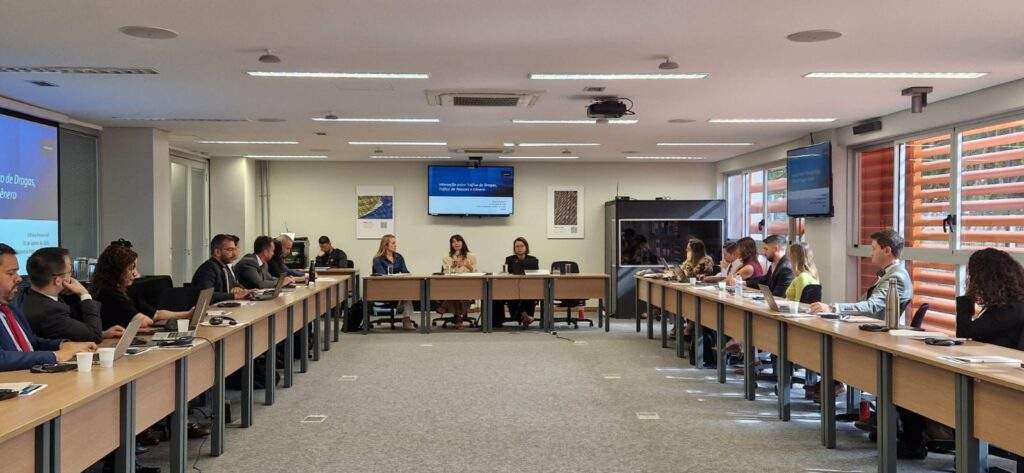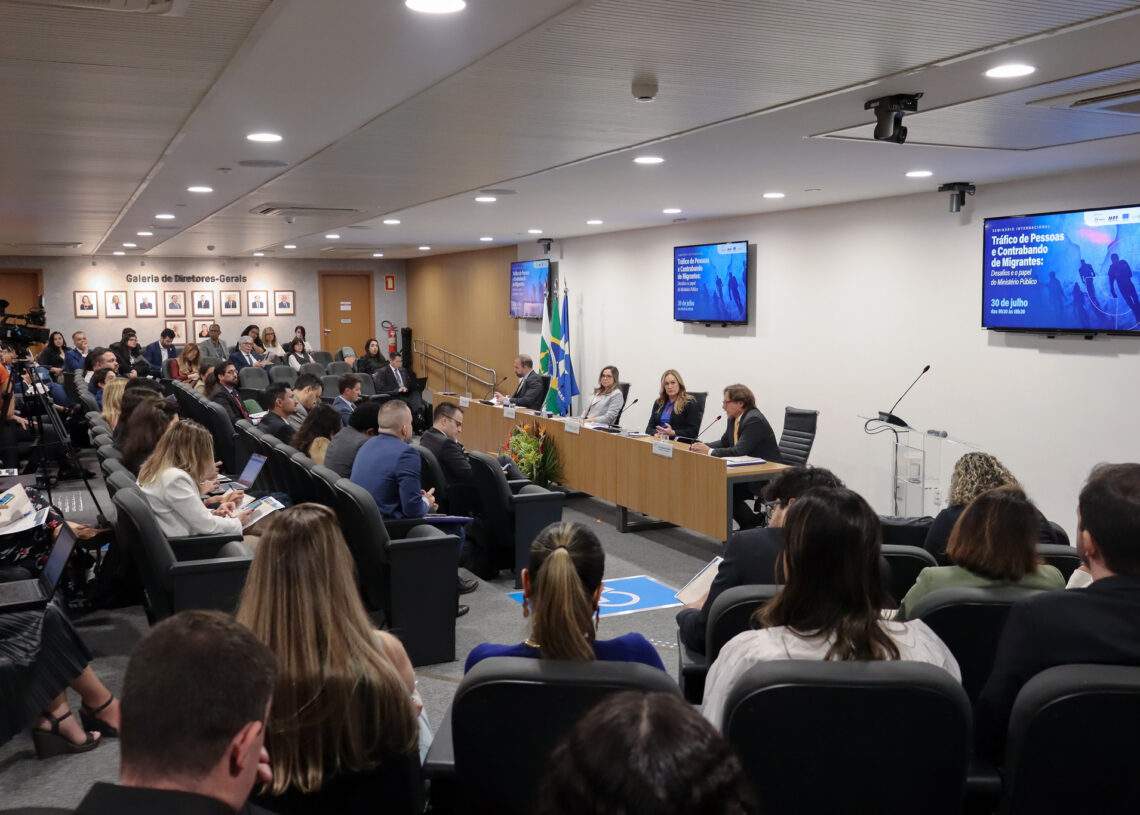The European Union’s COPOLAD III programme took part on 30 and 31 July in two events held in Brazil to mark the World Day Against Trafficking in Persons. These activities aimed to support institutional responses for the early identification and protection of vulnerable individuals who are coerced or deceived into transporting drugs as a result of trafficking dynamics.
On 31 July, the Joint Action Guide for the Early Identification of Human Trafficking Cases Involving Drug Transport in Airports was presented. This practical document was developed by Brazil’s Federal Prosecution Service in collaboration with COPOLAD III. It provides key concepts, case typologies, trafficking indicators, investigation and prosecution strategies with a gender and human rights approach, alternatives to criminal prosecution, and inter-institutional cooperation protocols.
The guide was at the core of the technical workshop “Intersection between Drug Trafficking, Human Trafficking and Gender”, which brought together Brazilian prosecutors and international experts to analyse real cases, share good practices, and strengthen capacities. Its central objective is to prevent the criminalisation of trafficking victims involved in drug transport, ensure their protection, and coordinate criminal justice interventions with support and care networks to avoid revictimisation.

This initiative forms part of COPOLAD III’s broader efforts in Latin America to integrate into criminal investigations the Regional Guidelines for the Early Identification and Non-Criminalisation of Victims, unanimously approved at the General Assembly of the Ibero-American Association of Public Prosecutors (AIAMP), held in Madrid in October 2023.
These regional guidelines are the result of a joint effort by three of AIAMP’s specialised networks: REDTRAM (Human Trafficking and Migrant Smuggling Network), RFAI (Anti-Drug Prosecutors Network), and REG (Gender Specialised Network).
Thanks to this alliance, a regional diagnosis was produced, analysing situations in which victimhood and criminal charges intersect, and guiding public prosecutors towards interventions with a human rights, gender and intersectional perspective. In addition to Brazil, the Public Prosecutors’ Offices of Argentina —also present at the workshop— and Paraguay are currently working on adapting the guidelines to their national contexts.
Advancing towards a criminal justice system with a gender perspective
The activities marking the World Day Against Trafficking in Persons began on 30 July with an international seminar, which also commemorated the first anniversary of the creation of Brazil’s National Unit against the International Trafficking in Persons and the Smuggling of Migrants (UNTC).
During the opening session, Ana Almeida, representative of the European Union in Brazil, stated:
“It is urgent to advance towards a criminal justice system with a gender perspective – one that recognises and protects victims and addresses the structural causes of their vulnerability.”
She added:
“The European Union has placed the fight against human trafficking at the heart of its foreign policy and international cooperation. Not only because it constitutes a flagrant violation of human rights, but because we understand that no country can face these challenges alone. International cooperation is not just desirable — it is indispensable.”






